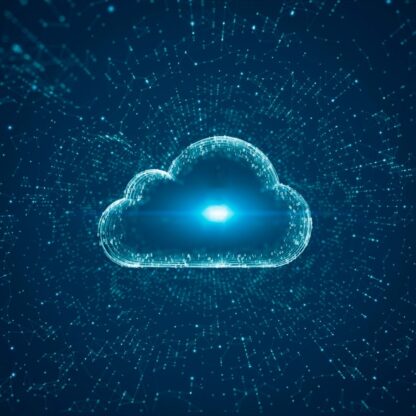The Internet of Things (IoT) market is expected to grow 18 percent in 2023, reaching more than 14.4 billion active connections. According to IoT Analytics, there will be more than 27 billion connected devices by 2025. Orion has been digitizing consumer products with advanced software and building IoT-connected solutions for more than two decades. I expect the IoT market to continue attracting new technological developments that will drive growth this year and beyond.
The IoT was a big focus at this year’s Consumer Electronics Show (CES), highlighting just how important connected devices have become in today’s technology-driven economy. Here are three key IoT software trends that are top of mind for our clients and partners.
Matter:
Smart home devices are commonplace in most homes today. In fact, Deloitte reports that 66 percent of households have smart home devices. At the same time, more manufacturers are producing devices that aren’t compatible with each other. That’s where Matter comes in.
Matter is the software protocol designed to fix issues around fragmented smart home systems, allowing different smart devices to connect and operate easily. The home automation standard was created by Amazon, Apple, Google, and Comcast as part of the Connectivity Standards Alliance (CSA). Jon Harros, CSA’s director of Certification and Testing Programs, told TechCrunch: “Manufacturers all agree to send the same commands and all agree to do the same thing when they’ve received those commands. It wouldn’t matter whether the command came from one manufacturer or the other. If you’re receiving it, it will always work in the same way.”
Bringing interoperability to smart home devices will accelerate the deployment of innovative consumer electronics. Our software development teams are working closely with leading electronic manufacturers and SaaS and Edge solution providers to help them realize the advantages of Matter in smart home products. It’s an exciting development, and we are committed to supporting organizations in the transition to the new Matter standard.
Transportation:
Innovations in transportation-related technology – from autonomous vehicles to airborne taxis – have been significantly enhanced by adopting IoT. A connected infrastructure combined with data analytics, cloud technologies, AI, and machine learning has helped transportation manufacturers and suppliers to develop and launch new products that have completely reshaped mobility. We’re now entering the software-defined vehicle era, where software is the engine driving today’s vehicles.
Software-defined vehicles were a major theme at this year’s CES. Nearly 300 transportation-related exhibitors could be found at the conference and in a dedicated transportation hall. Automotive giants like BMW and Volkswagen rolled out new vehicles loaded with the latest technology.
As a trusted software engineering partner for automotive solution vendors and transportation service providers, we were thrilled to see the attention these companies are receiving. Global suppliers like Bosch were in full force at CES, highlighting their latest software advances in connected automotive solutions. Digital technologies essential to self-driving vehicles from industry leaders like Mobileye continue to generate a lot of buzz and excitement.
Energy:
IoT is helping to reduce energy consumed by industrial and consumer products. New software solutions to tackle energy use and environmental problems are being deployed to build smarter cities, make infrastructure more resilient, and lower emissions.
Supporting the demand for the increasing amount of software needed for electric vehicles (EVs) is a focus for our team. The growing adoption of EVs, for example, will accelerate the development of a robust network of charging stations worldwide, which all need to be connected to the Internet with software. Several suppliers recently announced EV charging innovations, including a digital charging system designed to help truck fleets digitally manage all aspects of charging and operating electric trucks and vans.
Manufacturers of household appliances are also using advanced software to create competitive products that allow homeowners to reduce energy costs. We are working with global manufacturers on new digital technologies that utilize Demand Response (DR) to make intelligent decisions based on big data analysis. This data can help utilities manage electricity usage by shifting power consumption from peak demand hours to lower load periods. These types of software can be used to reduce energy consumption across the value chain.
IoT is a critical driver of the technology industry and creates a more connected world. The IoT provides endless possibilities for new and groundbreaking consumer and industrial products. As evidenced by our ongoing work developing the next generation of connected products for global companies and at the world’s largest consumer electronics show, the true promise of IoT is still ahead of us.
Orion’s IoT experience is vast and unparalleled. Leveraging our experience in embedded, connectivity, cloud, web software development and machine learning, we help our customers worldwide to create smart connected products bringing in new and expanded revenue streams. Learn more about our IoT software development services.

